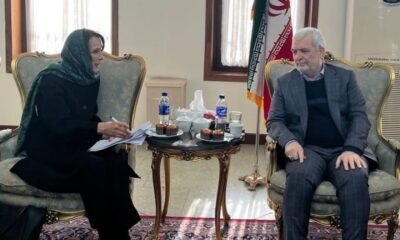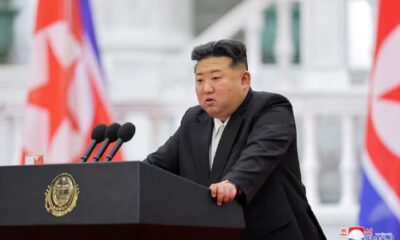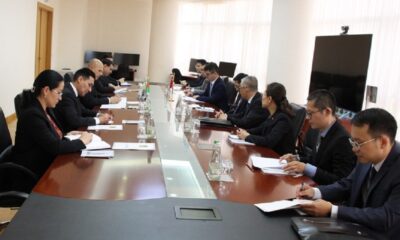Latest News
Pakistan Taliban demand prisoner release as condition for talks
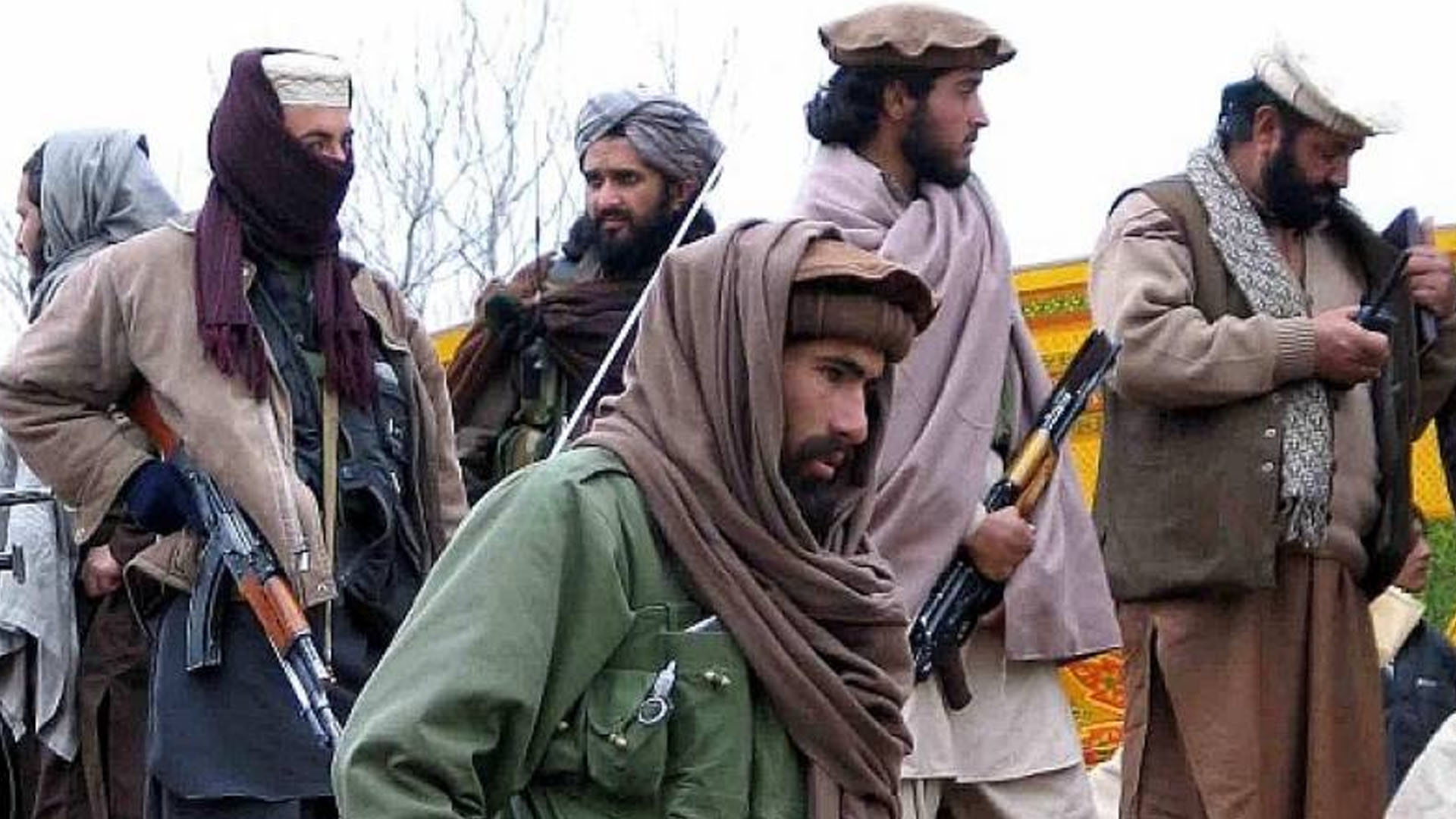
The Pakistani Taliban, also known as Tehrik-i Taliban Pakistan or TTP have demanded that the government of Pakistan release a number of prisoners as a condition for talks aimed at laying the ground for full ceasefire negotiations, multiple sources in the group said, Reuters reported.
The TTP and separate from the Islamic Emirate of Afghanistan (IEA) , have had two rounds of preliminary talks, facilitated by the IEA, a commander based in the Afghan province of Kunar said.
Reuters citing sources close to the matter said Sirajuddin Haqqani, the head of the Haqqani Network and the current Afghan IEA acting interior minister, was helping the talks.
The TTP, which combines a number of jihadi and militant groups that have been fighting the government of Pakistan since 2007, is included on the U.S. State Department’s list of foreign terrorist organisations.
Last month Prime Minister Imran Khan told Turkey’s TRT television that his government was in talks with parts of the TTP as part of a “reconciliation process”.
The release of the prisoners is meant to be a confidence-building measure, three TTP commanders said, adding that the outcome of the talks was still uncertain.
“We aren’t too hopeful of the immediate results of the talks but our leaders had demanded the release of prisoners if they are sincere in meaningful negotiations,” a TTP commander told Reuters from Afghanistan’s Kunar province.
No comment was available from the Pakistani government, Reuters reported.
According to negotiators, the two sides agreed not to issue statements either supporting or opposing the peace process or against each other till the accord is signed and made public.
TTP spokesman Muhammad Khurasani said in a text message the group had “never refused meaningful talks” but that there were no developments on the ground yet.
According to Reuters, the TTP attacks have killed and wounded thousands of civilians and Pakistani service personnel over the years but the group was badly weakened by the Pakistan military’s Zarb-e-Azb operation in 2014 which drove it from its stronghold in North Waziristan.
However it has a force estimated at around 4,000-5,000 fighters, many based across the border in Afghanistan, and there has been a spate of incidents along the border since the IEA seized Kabul in August.
Under the previous Western-backed government in Kabul, both Afghanistan and Pakistan accused each other of harbouring militant groups that mounted cross-border attacks.
Another TTP commander said the leadership had consulted all factions in the movement, some of which had serious reservations about talking to the Pakistani government, but he said many ordinary fighters wanted to go home.
Latest News
Iran’s envoy meets UNAMA deputy, stresses cooperation with Afghanistan
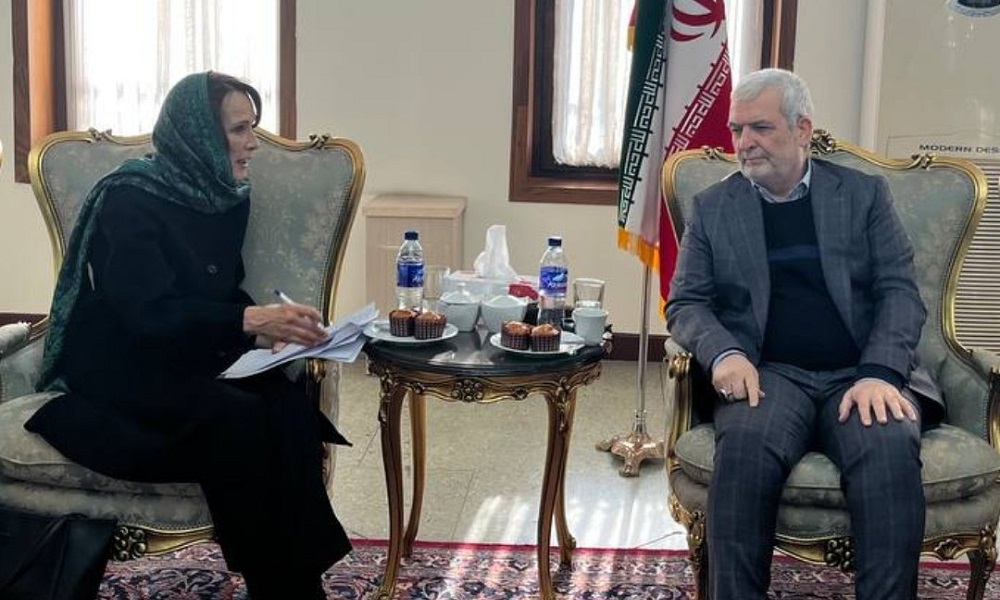
Hassan Kazemi Qomi, Iran's ambassador and special representative for Afghanistan met late Thursday with Georgette Gagnon, UNAMA’s deputy special political envoy for Kabul and they stressed the increase of cooperation with Afghanistan, the embassy said in a statement.
In this meeting, Qomi told Gagnon that Iran would support any initiative taken by the international community for Afghanistan.
In the meeting of Georgette Gagnon with Mr. Kazemi, the issue of narcotics and the presence of the private sector in Afghanistan were discussed, and Iran supports any constructive initiative of the international community for Afghanistan,” according to the statement.
Experts, meanwhile, believe the solutions of the United Nations to cooperate with Afghanistan's neighboring countries in consolidating stability and security can solve key issues such as terrorism and immigration.
Some experts consider strengthening Iran's partnership and cooperation with the UN for greater stability in Afghanistan is important and necessary.
However, Iran has not yet recognized the caretaker government of Afghanistan and has repeatedly emphasized the establishment of a comprehensive government in the country.
Over the past three years, Iran has established good relations with the Islamic Emirate, and trade between the two countries has increased.
Meanwhile, Tehran has previously opposed the appointment of a special representative for Afghanistan by the United Nations.
Latest News
Ten people killed in Baghlan attack

Ten people were killed by unknown individuals in Afghanistan’s northern Baghlan province on Thursday night, police said on Friday.
The incident happened as the victims were doing Zikr at a mosque in Shahr-e-Kuhna of Nahrin district, police said in a statement.
The statement said that they used to regularly go to mosques and monasteries at night after returning from work.
Abdul Ghayoor Khadim, a provincial police official, said that several people were arrested in connection with the incident, adding that an investigation was launched.
Latest News
Chinese, Turkmen officials meet to discuss Afghanistan
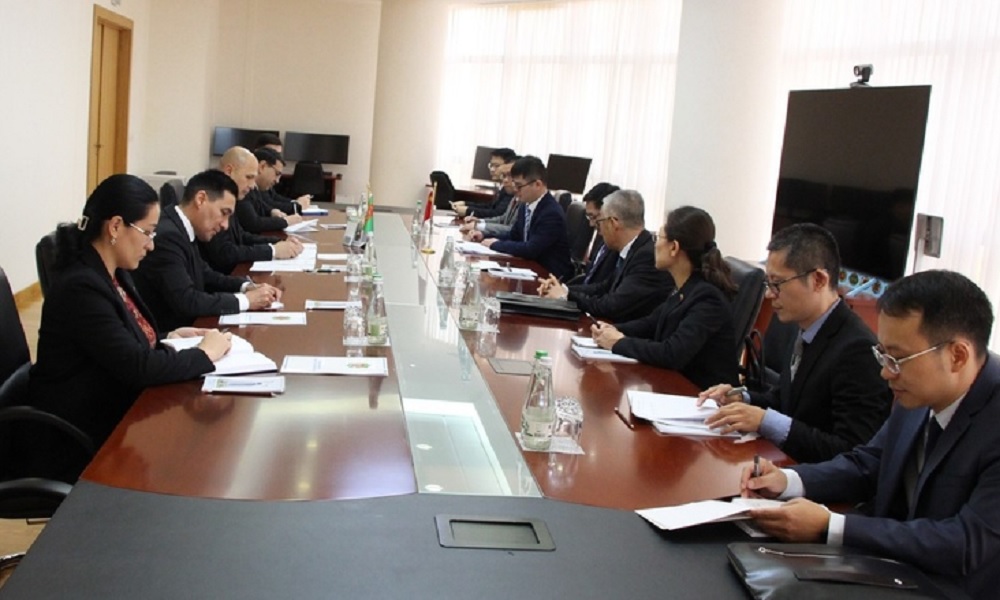
Deputy Minister of Foreign Affairs of Turkmenistan Serdar Muhammetdurdiyev on Thursday met with Chinese special envoy for Afghanistan, Yue Xiaoyong, the Foreign Ministry of Turkmenistan announced.
During the meeting, the sides discussed priority vectors of strategic interstate cooperation built on a long-term, mutually beneficial basis, as well as exchanged views on the implementation of previously reached agreements.
It was noted that personal contacts between the leaders of the two countries play a key role in intensifying the interstate dialogue, which give a strong impulse to further development and expansion of Turkmen-Chinese ties.
It was emphasized that Turkmenistan considers multilateral international platforms for maintaining stability in Afghanistan as an important factor in promoting sustainable improvement of socio-economic state of the neighboring country. The sides exchanged views on the preparations to the 5th meeting of Foreign Ministers of Afghanistan's Neighboring States to be held in Turkmenistan.
The interlocutors reaffirmed that Turkmenistan and China will continue to provide all-round support for the economic restoration of Afghanistan.
-

 Sport4 days ago
Sport4 days agoAbu Dhabi’s thrilling T10 tournament just days away
-

 World5 days ago
World5 days agoBiden allows Ukraine to use US arms to strike inside Russia
-

 Sport4 days ago
Sport4 days agoAfghanistan beat UAE by 169 runs in U19 tri-series
-

 Latest News3 days ago
Latest News3 days agoTajikistan trumps Afghanistan 3-1 in football friendly
-
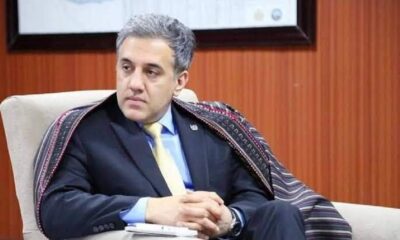
 Latest News4 days ago
Latest News4 days agoTwo Afghan diplomats posted to Germany under former government resign
-
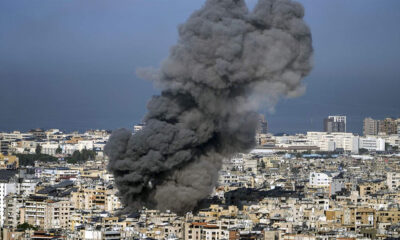
 World3 days ago
World3 days agoLebanon, Hezbollah agree to US proposal for ceasefire with Israel, Lebanese official says
-
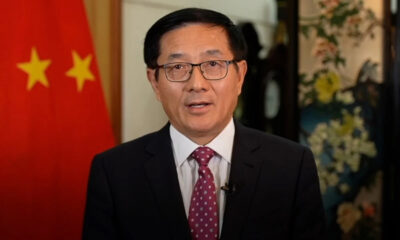
 Latest News4 days ago
Latest News4 days agoChina’s envoy says Beijing never interferes in Afghanistan’s internal affairs
-

 Latest News2 days ago
Latest News2 days agoEU marks International Children’s Day, says it supports Afghan children


